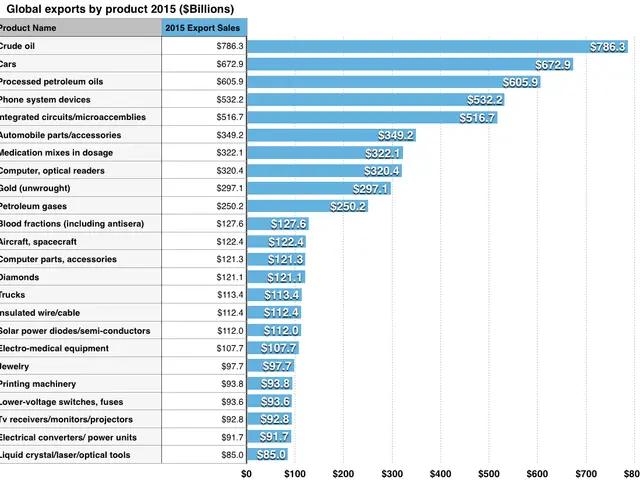Evaluating Marine Lab Test Kits from NT Labs: A Comprehensive Purchasing Guide
In the vibrant world of marine aquariums, maintaining a balanced and healthy environment is crucial for the well-being of corals, fish, and invertebrates. NT Labs, a UK-based company renowned for its dedication to advancing aquatic health and care, offers a solution with its Marine Lab Test Kits.
These multi-parameter water testing kits are designed specifically for marine aquariums, providing a comprehensive suite of tests to monitor key water quality parameters. The kits typically include tests for pH, ammonia, nitrite, nitrate, phosphate, calcium, alkalinity, and salinity, among others.
NT Labs Marine Lab Test Kits are acclaimed for their precision and are particularly popular for their ability to accurately monitor critical parameters such as magnesium, carbonate hardness, and phosphate.
Magnesium serves three main functions in the marine aquarium. It is essential for the uptake of calcium for invertebrates to utilise in their exoskeleton formation, helps to maintain the correct proportions of calcium and bicarbonate/carbonates in the water, and is essential for biological systems, including the machinery that drives photosynthesis used by plants and corals.
Carbonate hardness, the measurement of the combined presence of carbonates and bicarbonates in the water, is also crucial. It provides a buffering capacity to the pH of the water, helping to maintain a stable pH. In marine aquariums, a balance of HCO3- and CO32- exists to make up the carbonate hardness, as saltwater aquariums are recommended to be kept at a pH value of at least 8.0.
It is important to monitor the carbonate hardness weekly to ensure adequate levels are maintained, aiming for around 7.5 dKH to best replicate natural sea water. Corals use carbonates (and bicarbonates) to build their exoskeletons, and absorption of carbonates and bicarbonates will reduce carbonate hardness levels.
Calcium is another essential element in marine aquariums, as it is one of the major building blocks of aquatic life. Maintaining the correct concentration of calcium is critical, with levels recommended to be between 380-450 mg/l, with natural sea water averaging 420 mg/l.
In a reef aquarium, a low magnesium concentration can affect the health and growth rate of corals. The ideal magnesium level in the aquarium should be maintained at natural sea water levels: 1300-1400 mg/l. Regular water changes using a quality salt mix will usually maintain adequate magnesium levels in the aquarium. If the Mg2+ levels are testing on the low end, supplementing with a suitable magnesium buffer will restore levels.
Phosphate, an oxygen-containing compound of phosphorus, can be introduced into the aquarium through several means, including fish food, fish waste, sea salts, tap water, and phosphate-based buffers. Elevated phosphate can fuel nuisance algae and inhibit healthy coral growth, with optimal levels for coral growth and minimal nuisance algae being 0.03 mg/L PO4-P.
Regular water changes using a reef-grade quality salt (which will be lower in phosphate) and growing algae in a refugium can help keep phosphate levels low. For chemical phosphate removal, use a Phosphate Remover permanently in the filter and replace once exhausted.
In summary, NT Labs Marine Lab Test Kits are comprehensive, multi-parameter test kits essential for monitoring the critical water parameters necessary to maintain the delicate balance in marine aquariums, supporting the health and stability of aquatic ecosystems within these controlled environments. These kits are practical and accessible solutions for marine hobbyists and professionals alike, enabling them to prevent issues caused by poor water quality and to maintain optimal conditions that support healthy coral growth and fish vitality.
- Science plays a significant role in the realm of health-and-wellness, as NT Labs, a leading company in the field, develops solutions for marine aquarium care, such as their Marine Lab Test Kits.
- Fitness-and-exercise, nutrition, and cooking also intersect with healthy-lifestyle choices, similar to the balanced diet needed by marine life in an aquarium.
- The fashion-and-beauty industry, like marine aquariums, requires careful management to maintain a desirable environment, with travel being essential for both industries to source materials and inspiration.
- Cars, much like a marine aquarium, require regular maintenance and checks to ensure they are running efficiently and healthily, with food-and-drink being an important aspect of their fuel source.
- Maintaining ideal conditions, whether in a car's engine or a marine aquarium, contributes to their longevity and performance, emphasizing the importance of monitoring key elements such as water parameters and fuel quality.





